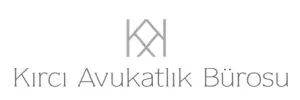- within Intellectual Property topic(s)
- in United States
- in United States
Abstract
This study explores the intersection of AI and intellectual property, with a particular focus on the protection terms and scope of Law No. 5846 on Intellectual and Artistic Works in force in Türkiye. The central question of this study – whether intellectual products created by AI can be considered original, and whether the AI systems that generate these products or their users can be regarded as authors – is analyzed within the framework of current regulations and principles guiding copyright in Türkiye. The analysis references a precedent decision from the US District Court for the District of Columbia in Taler v. Perlmutter alongside the US Copyright Office's recent report on AI copyrightability, suggesting that this evolving issue may require legal re-evaluation in the near future.
Copyright Protection of AI-Generated Works under Turkish Law
We are pleased to announce that our founding attorney, N. Berkay Kırcı, has authored a new article published in GRUR International (Oxford University Press and C.H. Beck), a leading journal in the field of intellectual property law.
Titled "Can Artificial Intelligence (AI)-Generated Works Be Protected Under Turkish Copyright Law?", the article explores whether intellectual products generated by AI systems can qualify as original works and whether AI systems or their users can be regarded as "authors" under Turkish copyright legislation.
This article is a thoroughly revised, updated, and expanded English version of the author's earlier work, originally published in the September 2024 issue of the Ankara Bar Association Journal of Intellectual Property and Competition Law.
It also incorporates comparative insights from recent U.S. case law and contributes to the ongoing international legal debate on AI and copyright protection.
Originally published by GRUR International, ikaf067, https://doi.org/10.1093/grurint/ikaf067
The content of this article is intended to provide a general guide to the subject matter. Specialist advice should be sought about your specific circumstances.
[View Source]

